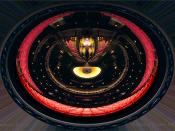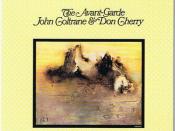In Twentieth Century Theatre from the time of the Renaissance on, theatre seemed to be striving for total realism, or at least for the illusion of reality. As it reached that goal in the late 19th century, a multifaceted, antirealistic reaction erupted.
Many movements, generally lumped together as the avant-garde, attempted to suggest alternatives to the realistic drama and production. Paralleling modern art movements, various theoreticians turned to symbol, abstraction, and ritual in an attempt to revitalize the theatre. Although realism continues to be dominant in contemporary theatre, its earlier functions are now better served by television and film.
The originator of many antirealist ideas was the German opera composer Richard Wagner. He believed that the job of the playwright/composer was to create myths. In so doing, Wagner felt, the creator of drama was portraying an ideal world in which the audience shared a communal experience, perhaps as the ancients had done.
He sought to depict the "soul state," or inner being, of characters rather than their superficial, realistic aspects. Furthermore, Wagner was unhappy with the lack of unity among the individual arts that constituted the drama. He proposed the Gesamtkunstwerk, the "total art work," in which all dramatic elements are unified, preferably under the control of a single artistic creator.
The avant-garde choreographers can be characterized by, in general having a less formal attitude towards dance than the previous generation. While their predecessors were obsessed with conveying angst and emotion, these dancers seemed to have more fun. Their frivolity could be attributed to the fact that as dancers, they were no longer on a crusade to legitimise their art.
The avant-garde choreographers felt free to experiment. They questioned the frontal aspect of creating a dance that was inherent in ballet and early Modern dance; why couldn't dance be in...


